There are very few words that upset both video game and movie consumers more than adaptation. Interactive story and action moments that make a game the experience that people expect are always hard to transfer over to a different form of consumption. Although this is still discussed to death by film and video game fans alike, one example managed to transcend any previous thoughts. No, Sonic the Hedgehog 2, is not it, but you would not be wrong for thinking that. HBO’s television series adaptation of the zombie video game epic The Last of Us is that example.
The Last of Us is an adaptation of the video game of the same name from Naughty Dog Studios. Set in a post-apocalyptic world filled with reanimated corpses controlled by a deadly parasitic fungus, we follow grizzled survivor Joel as he navigates his way. While on a personal mission, he is set up to care for and transport Ellie, a teenager with great importance but no known reason to Joel. There will be some spoilers along the way, so proceed with caution.
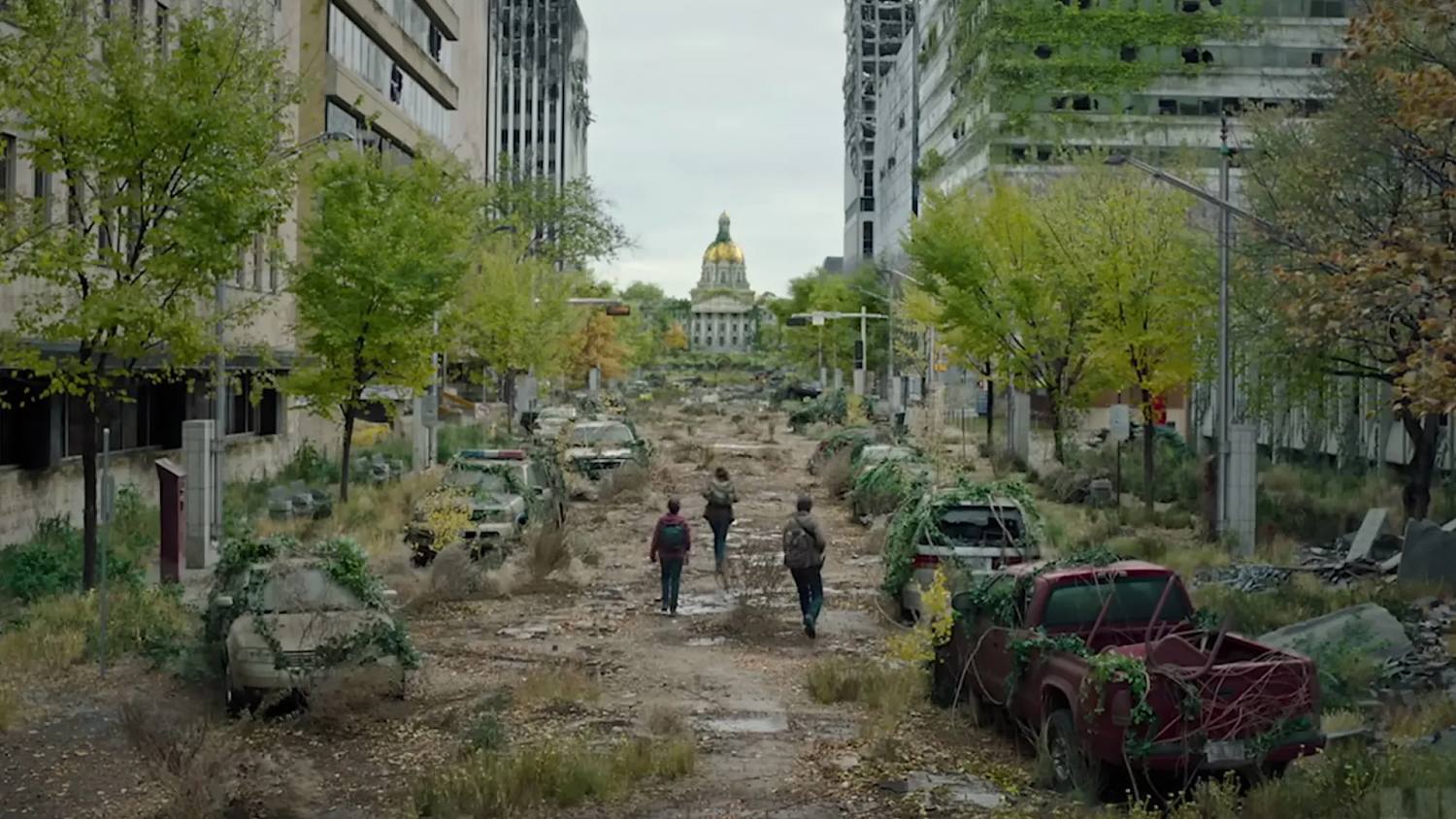
Still from HBO’s The Last of Us. Image provided courtesy of Naughty Dog Studios
The Last of Us Adaptation
Here is a little context first. The Last of Us was first released in June of 2013 and since then the gaming world has not been the same. While most games are just a series of mechanical motions to many, it’s story-driven narrative games like this game that have become more prevalent in recent years.
Since its release, The Last of Us has cultivated one of the most passionate fan bases of any piece of media ever. When the sequel game was released, the consensus landed on both ends of the spectrum for the fans. However, the love for the first is unwavering. Regardless of the outcome, the legacy of the first game could not possibly be tarnished. That was until it was announced by HBO that they would be adapting the beloved survival game into a television series. Would this adaptation befall the same curse that every other game before it has? The short answer is no.
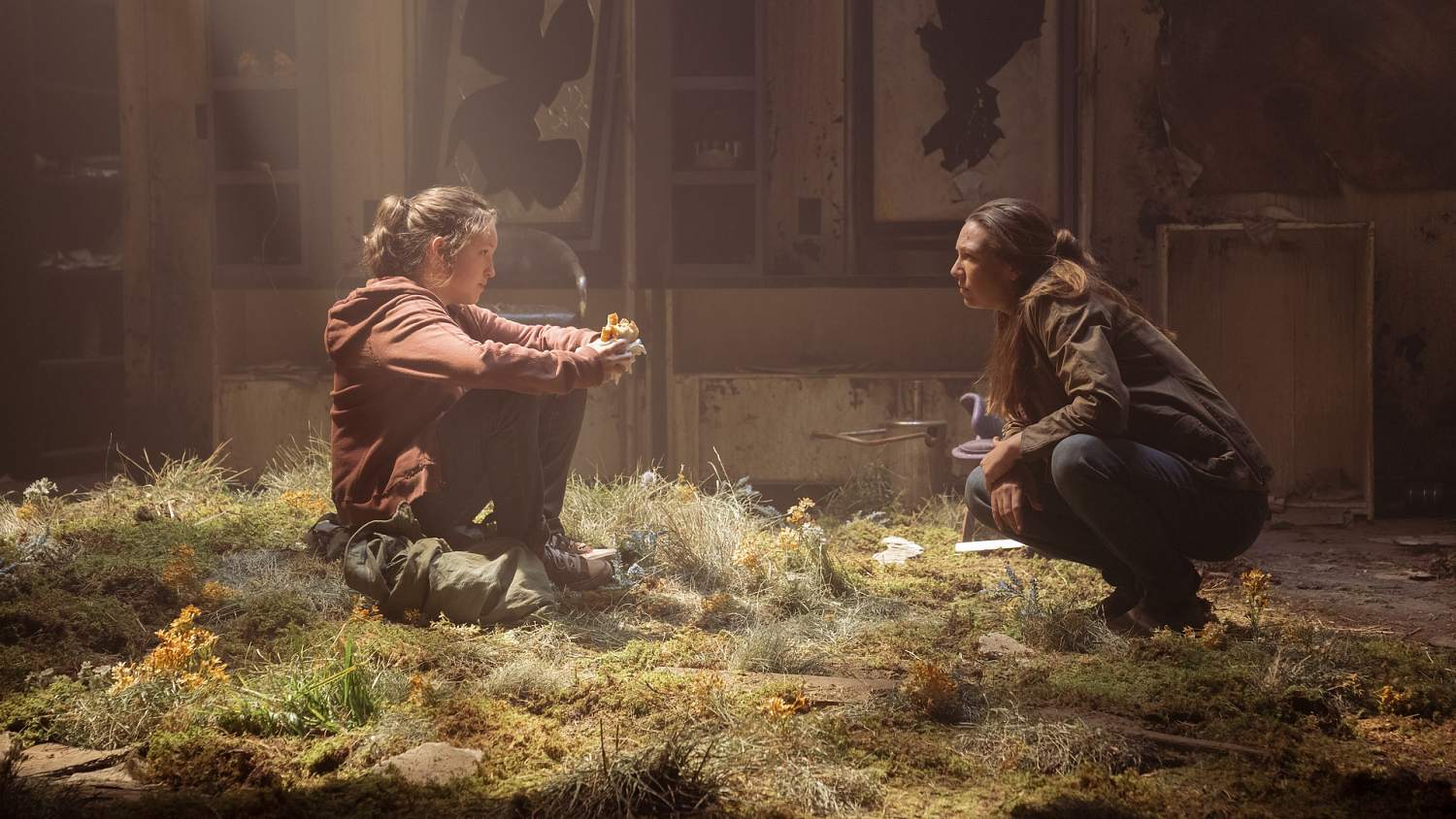
Bella Ramsey as Ellie and Anna Torv as Tess in HBO’s The Last of Us. | Image provided courtesy of Naughty Dog Studios.
The Question Was, Film or TV?
I’ll talk specifics in a second, but the element that helped this whole thing play out so well is the television decision over a film conversion. The Last of Us is a linear story where each section differs from the previous, but there are not exactly chapters. The episodic structure helped the pacing and storytelling in ways a movie would not even begin to convey properly.
Breaking down each important moment and storyline from the original game into its own individual episode made everything feel much more personal. Not only does this allow fans of the story to mentally prepare and guess what is coming next, but for those only here for the show it creates a unique position to genuinely ask, “What comes next?” On the topic of mental preparation, series creators Neil Druckman and Craig Mazin, were fully aware fans knew what would come next each week.
To combat this complete predictability, many episodes had entire plot shifts or slight addendums to the story. This not only made for an interesting show, but for an unpredictable one as well. To summarize all of this, I firmly believe this is exactly how media should be adapted.
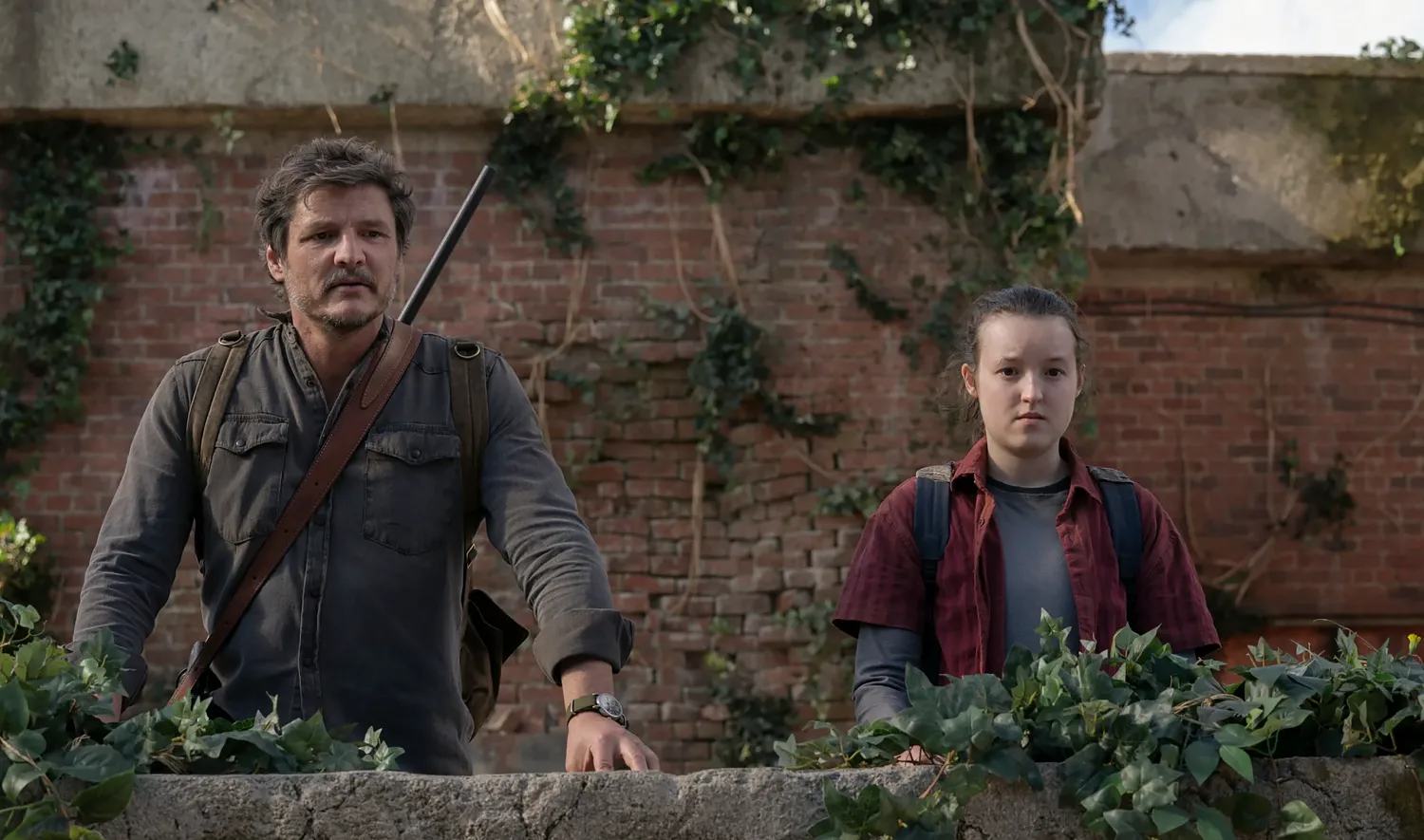
Pedro Pascal as Joel and Bella Ramsey as Ellie in HBO’s The Last of Us. Image provided courtesy of Naughty Dog Studios.
Similarities
When Sunday nights rolled around, my roommates and I would gather to watch the newest episode. There was always at least an hour of water cooler discussion every time. We would predict what’s next, talk about what just happened, etc. After the show wrapped up, we all mostly came to the conclusion that the shot-for-shot recreations of the game were hit or miss. Nothing in this show was bad by any stretch. Comparatively, I think some of the weaker episodes were the ones where everything was recreated down to the last detail.
As a fan of things and an enjoyer of stuff, I like when the media recreates something shot for shot. It may not always be justified, or good, but The Last of Us is a special case. The game itself is already as cinematic as video games come.
Shots recreated verbatim were going to be inevitable and they were great, for the most part. Again, these episodes are good, but comparatively they are not as strong. The episode that immediately comes to mind is episode seven, “Left Behind”.
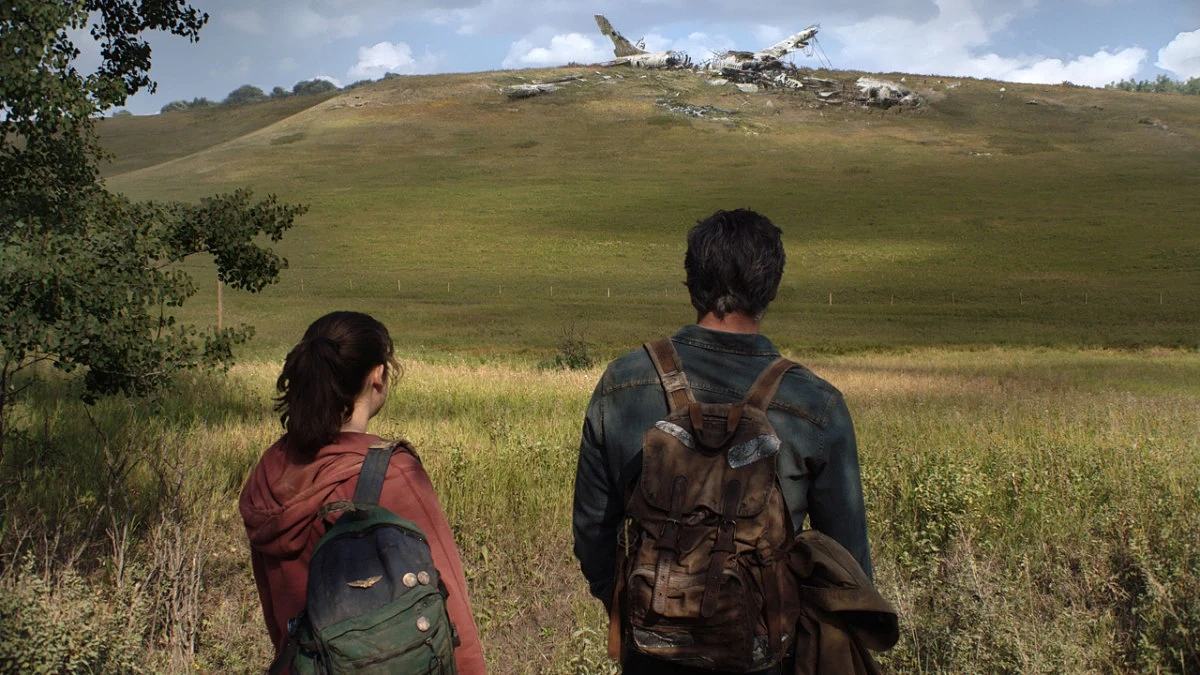
Bella Ramsey as Ellie and Pedro Pascal as Joel in HBO’s The Last of Us. Image provided courtesy of Naughty Dog Studios.
The episode follows Ellie’s life before she met Joel. We meet Riley; Ellie’s best friend and first romantic interest. This storyline was already made so perfectly that a recreation of everything didn’t do a whole lot. The episode that followed this was yet another near-verbatim recreation of a crucial Ellie moment.
After an incident occurs that takes Joel out of action, Ellie is left to fight for food and survival all while protecting Joel. Along her journey she finds a group who is secretly making them into cannibals.
In the game, this was the scariest section for me. However, in the show, this was one of the least gripping episodes. The story was good, but in terms of what it tried to accomplish it didn’t do as much for me as I would have liked.
In fact, even though the majority of the episodes were good, I found myself getting more disinterested with seeing the same story again. I played the game and I love the story. Rehashing the same story is fine, but considering the changes this show made to itself, all of these storylines could have been stronger, in my opinion.
Rather than talking about the same thing over again, it feels like it bears repeating that none of these episodes were bad. I enjoyed every episode and thought the logic, performances, writing, and action sequences were all sensible.
The overarching problem in every episode is the sometimes bland repetition of the same thing everyone has already seen from the game. This is actually a great segue into the good stuff I wanted to talk about.
Good Similarities
Bella Ramsey (Game of Thrones) as Ellie and Pedro Pascal (The Mandolorian) as Joel are incredible. Both actors understood the essence of these characters and delivered their own personal touches and tinges. Pascal has a smile on his face 9/10 times. To see him portray a character that knows nothing other than pain and loss is difficult to stomach.
Ramsey is only 19 years old. They are already co-starring in their second HBO smash hit series and killing it with ease. Ramsey brings their own innocent childishness while also absorbing Ellie’s brand of foul-mouthed hilarity. On top of that, Ramsey is scary in some scenes. One of Ellie’s interactions with David in episode seven kept me on the edge of my seat.
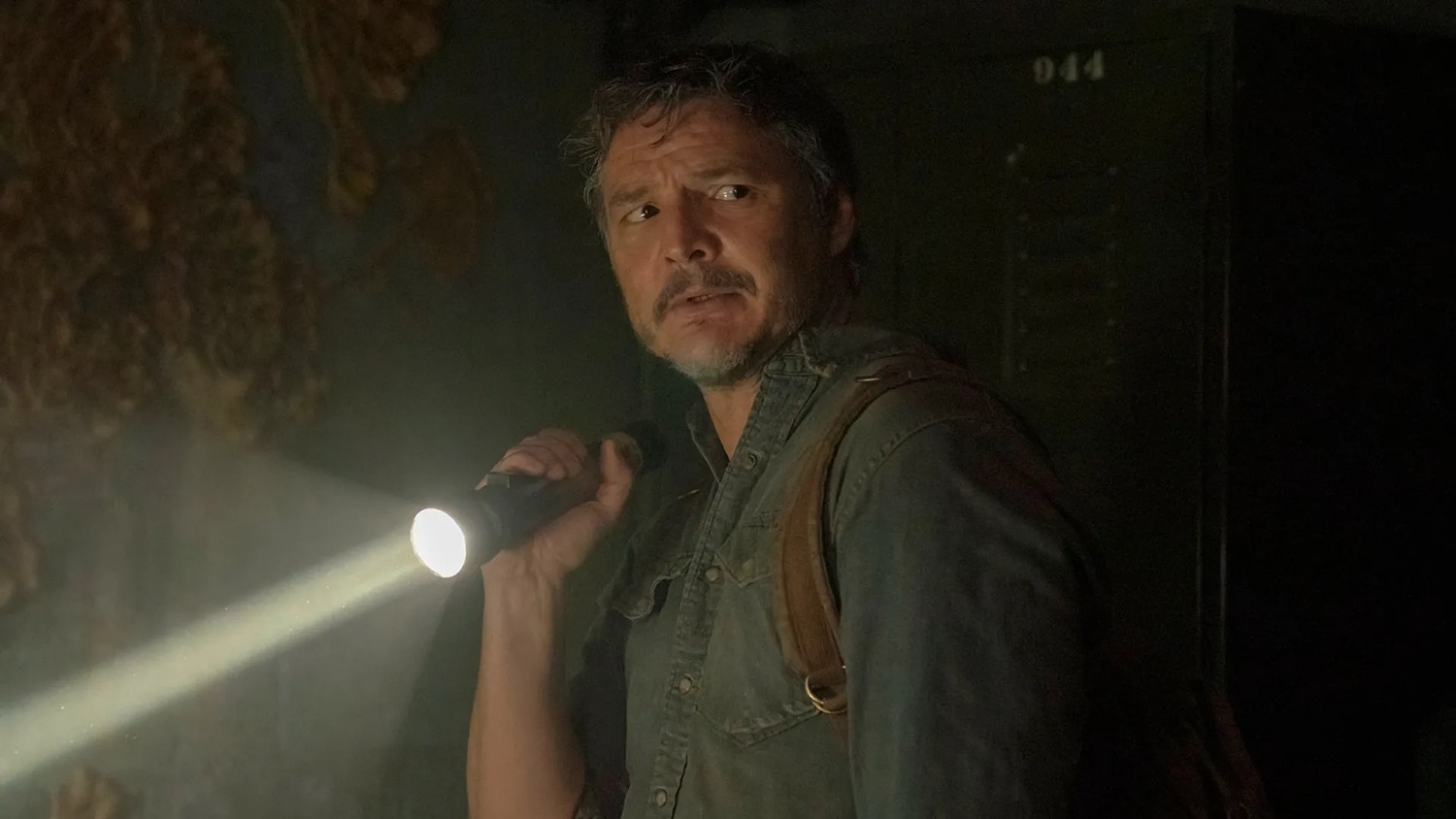
Pedro Pascal as Joel in HBO’s The Last of Us. Image provided courtesy of Naughty Dog Studios.
I could talk about every individual actor bringing their best performances to the table, but there’s not enough time for that. Every performance in this series is fantastic. Although there is an episode that I will talk about in a minute that hit me pretty hard, there was another pair that hurt me more. The Sam and Henry portion of the story was one I was ready for, but yet there was nothing I could do once it was all over.
This section is smaller, but my appreciation for the replications that emotionally hit are far greater than those that did not.
Differences
The greatest strengths of this series are within the structure itself. Despite my own personal increase of slight displeasure with the verbatim recreations of scenes from the game, these moments are still so incredible. However, the episodes and small moments that differ ever so slightly are what have stuck with me the most.
The explanation of where the virus came from is great. Some global perspectives before the event could have been a miss, but hit all the right notes. Adding more qualities and sub-stories to each character’s life made everyone feel all the more real.
When a single episode of a series transcends the normal circles of conversation, it is something special. The story of Bill and Frank is one that did not get a lot of attention in the game. Joel dangles upside down from a rope and shoots some clickers before Bill walks in and saves him. We never meet Frank, and we know Bill long enough to like him. Casting Parks and Recreation alum Nick Offerman as Bill was a fantastic choice off the bat. I half expected Offerman’s appearance to be as quick as the game showed him.
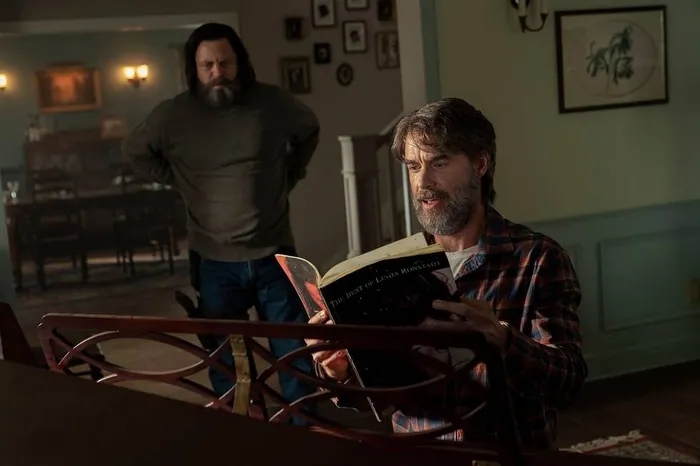
Nick Offerman as Bill and Murray Bartlett as Frank in HBO’s The Last of Us. Image provided courtesy of Naughty Dog Studios.
Instead, The Last of Us gave us a love story that hammered home every aspect of the overarching themes. Rather than a quick adventure we are treated to a lifelong relationship between two star-crossed lovers. By this point, I think it is safe to assume that if you are reading this then you know the full episode. If not, then I cannot recommend enough to give this a watch.
While this was the only episode with a total makeover, there are numerous other cosmetic changes that make this situation feel all the more real and scary. Little things that connect the bridges further strengthen what makes everything happening more grounded. The aforementioned themes of survival and love increase the believability.
Nice Little Changes
In the pilot we get a cold open of a talk show in the 70s. The scene is basically a warning for everyone later in this world that no one listens to. The second episode gave the perspective of a scientist in Mycology from Indonesia. Uttering the word “Bomb” as her solution to stop the spreading, everything sinks in from there.
Although it’s a grim change and a nice little plot twist, Joel has a conversational subplot where talks about a man missing him with his gun. From here we assume he is talking about the death of his daughter, but he reveals it was when he made an attempt on his own life. My stomach dropped and my tear ducts were full.
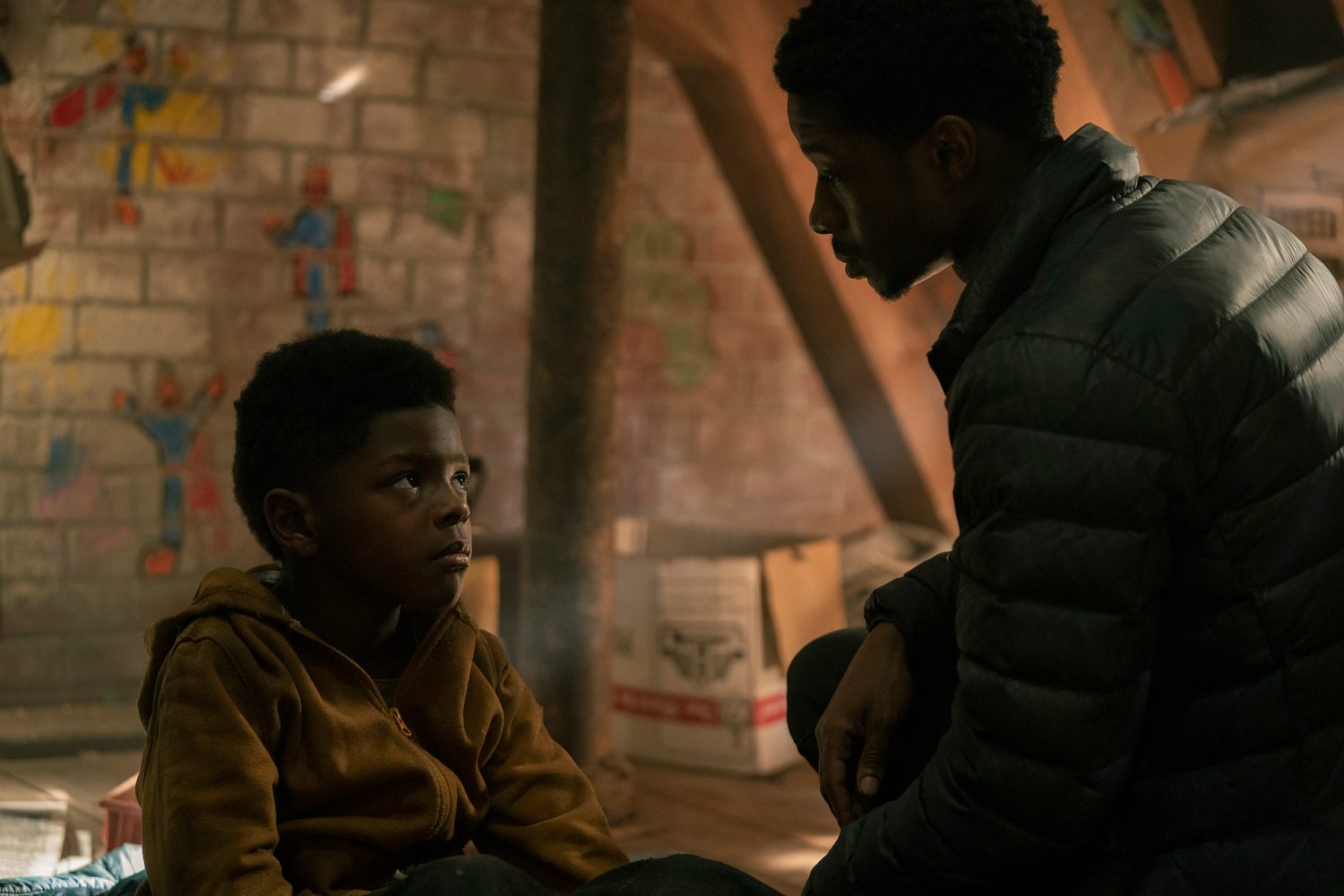
Kevionn Montreal Woodard as Sam and Lamar Johnson in HBO’s The Last of Us. Image provided courtesy of Naughty Dog Studios.
In Conclusion
A grounded story in a fantastical world is crucial. Continuing on the path of questionable morality in this story is yet another important factor in everything. The Last of Us is not a morally good story. It’s hard not to feel like a bad person for agreeing with the terrible decisions everyone makes, but it’s not hard to be entertained. The Last of Us is a fantastically made adaptation and a terrifically written television show. Even if zombies aren’t your thing, there is way more to this show than that.
You can watch The Last of Us now on HBOMax.








